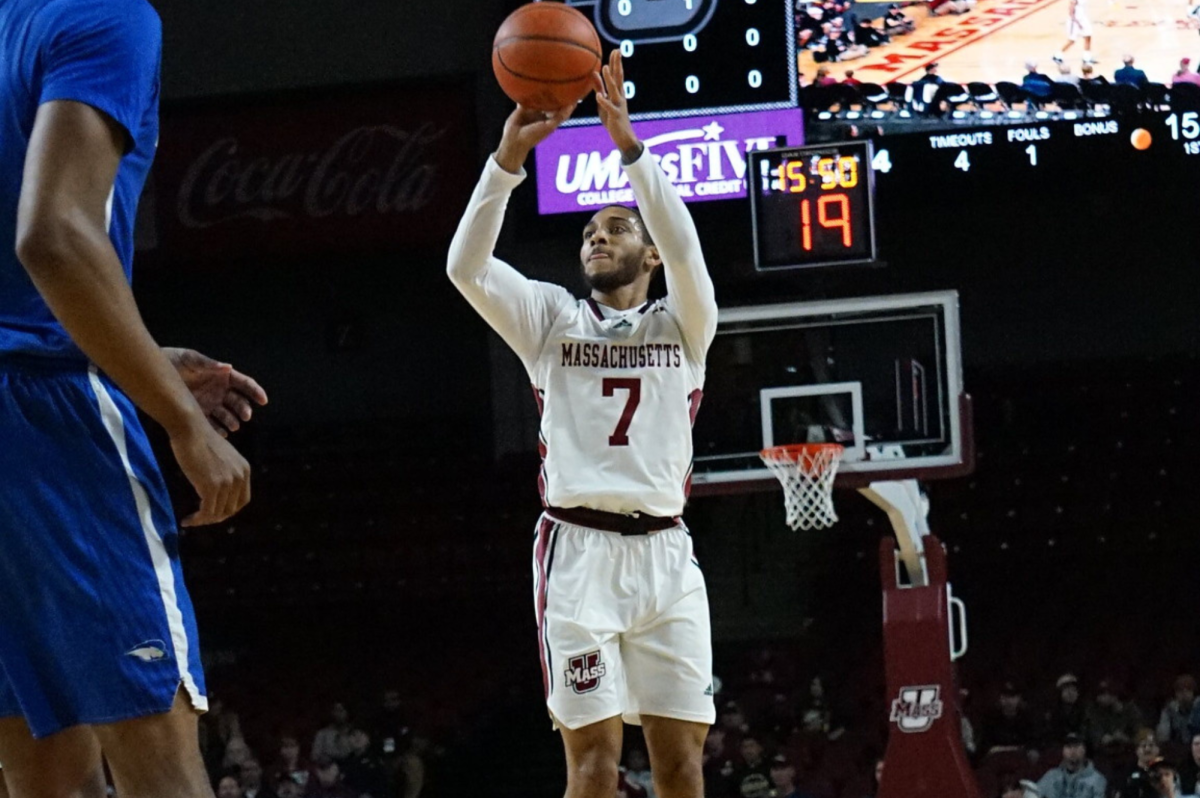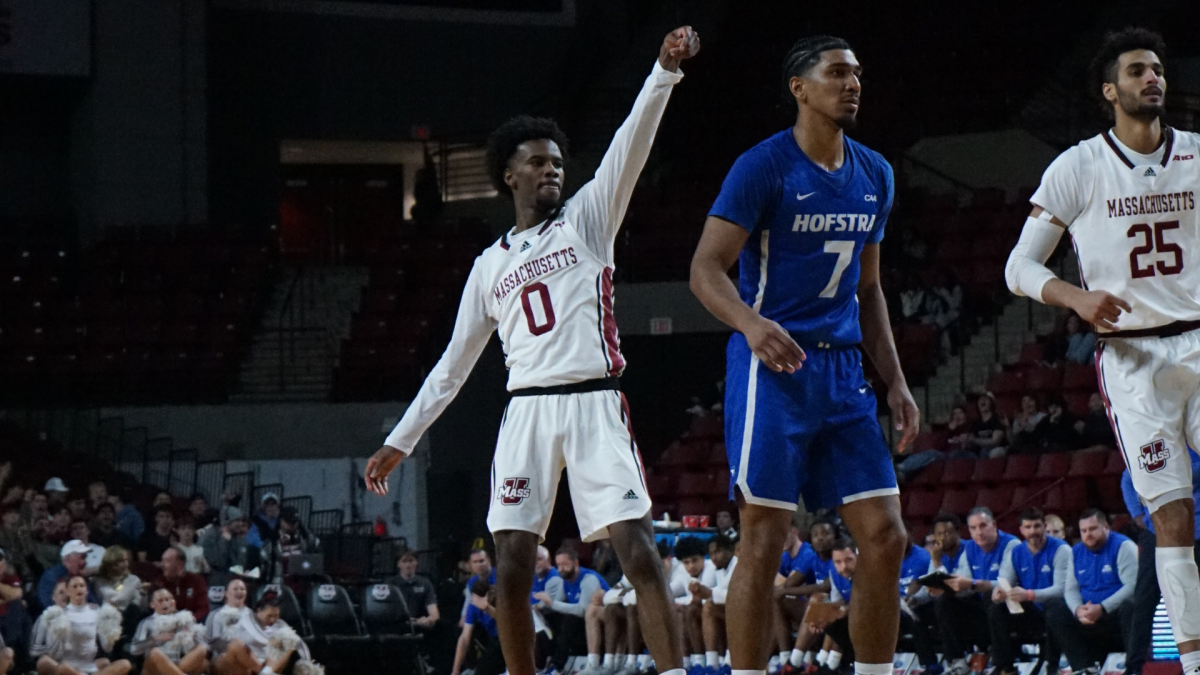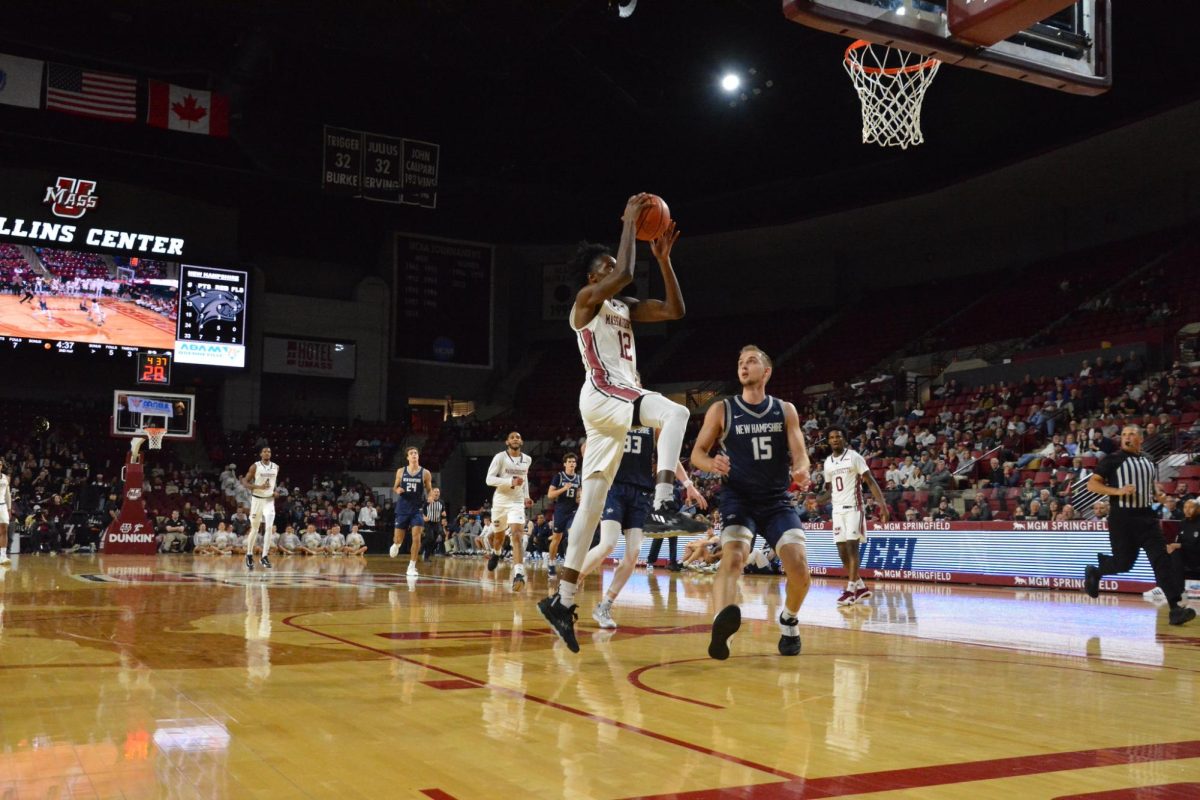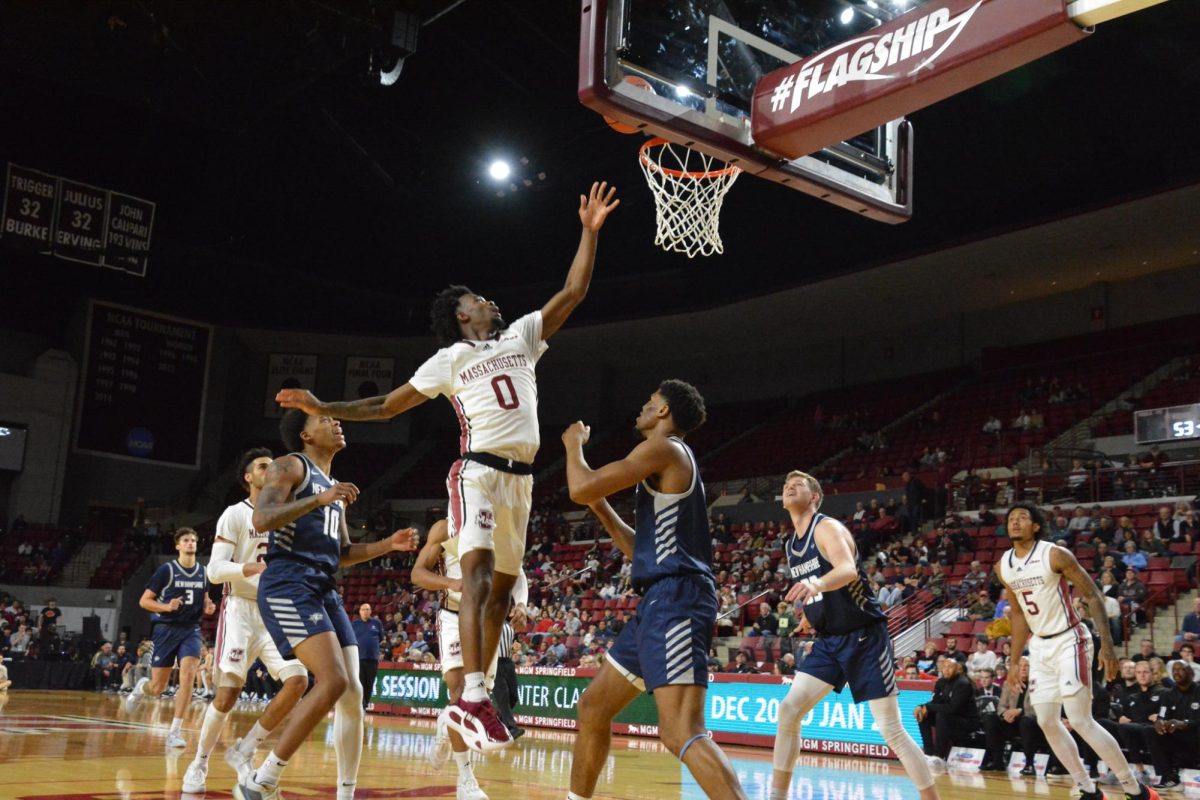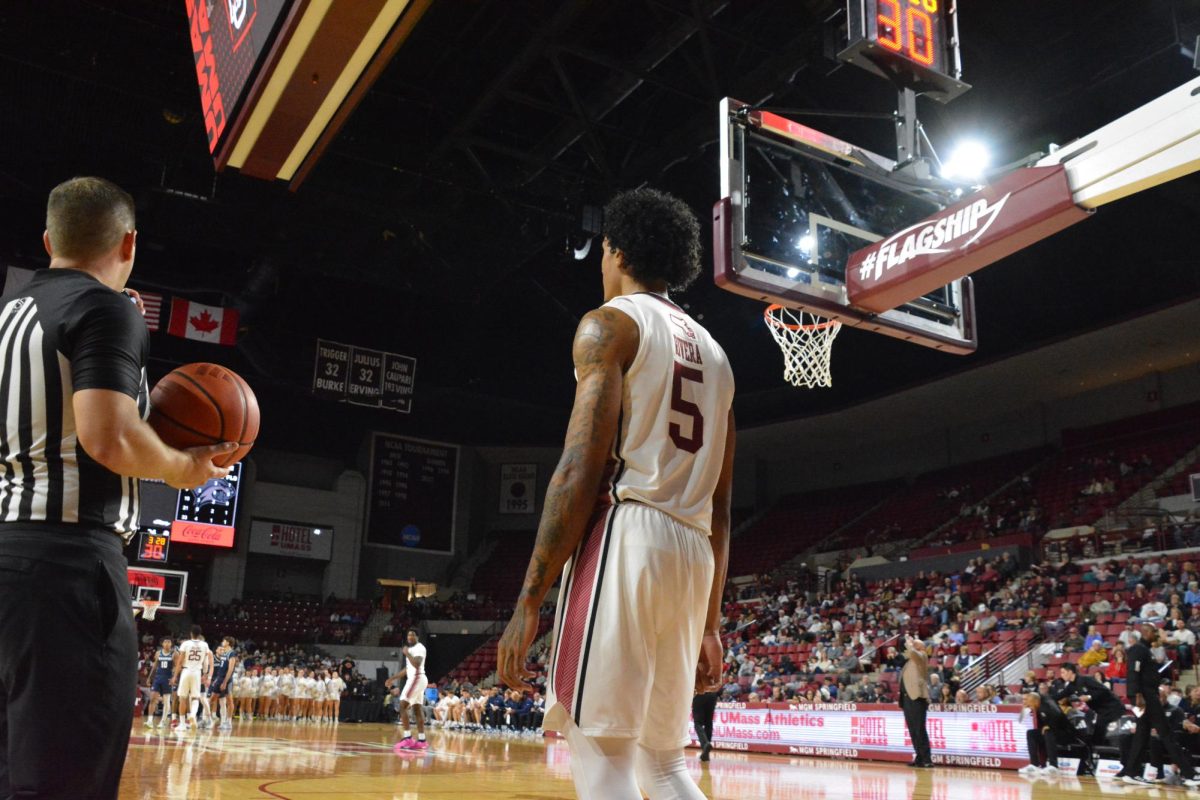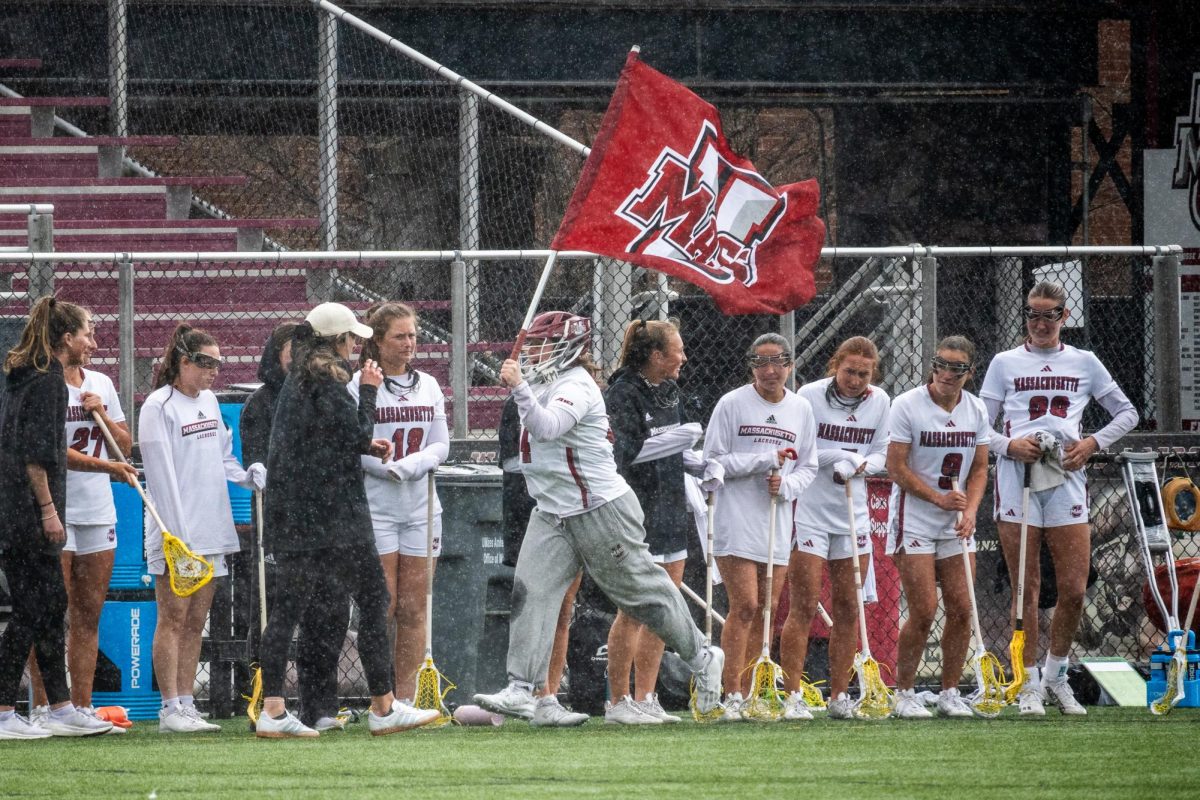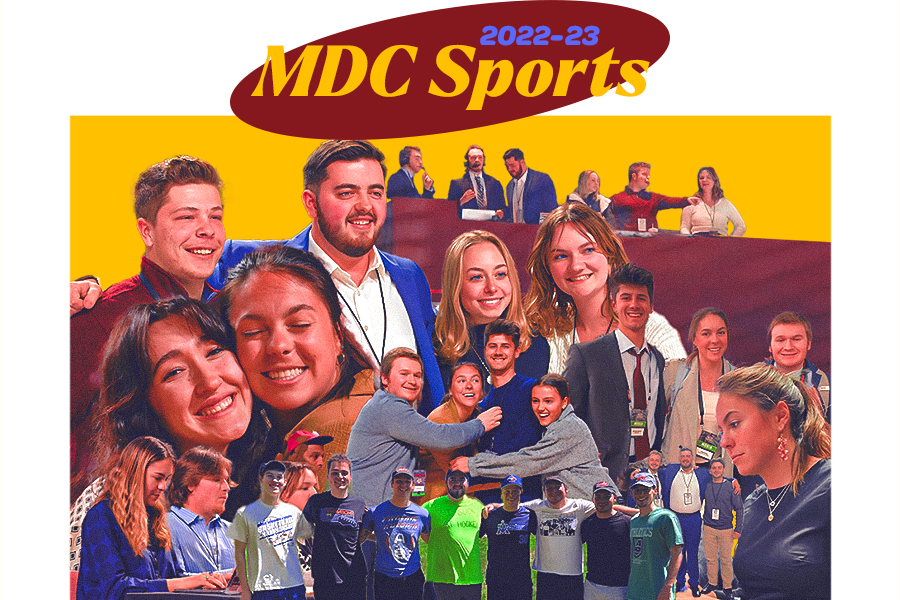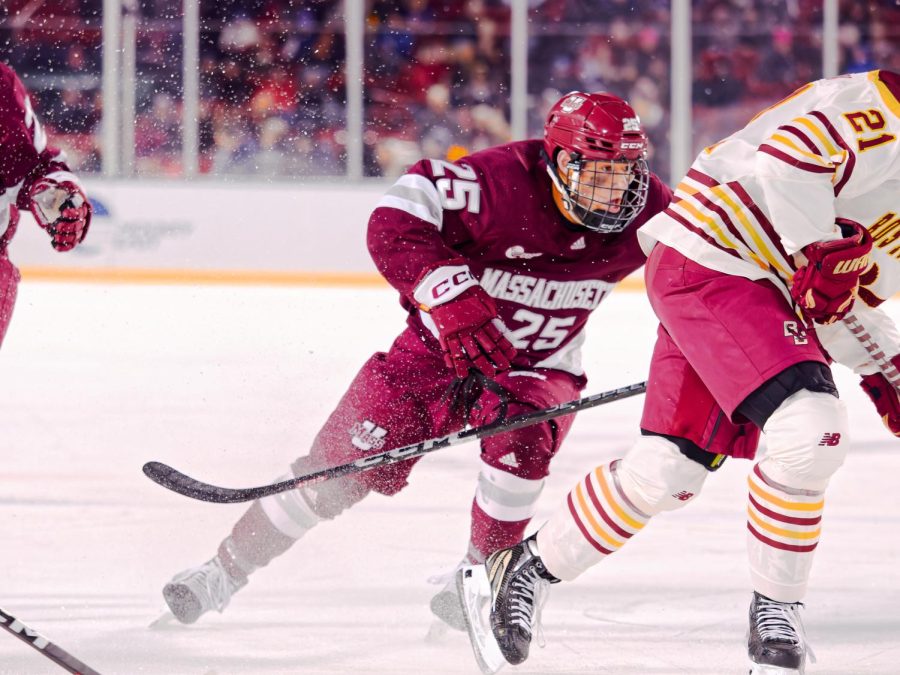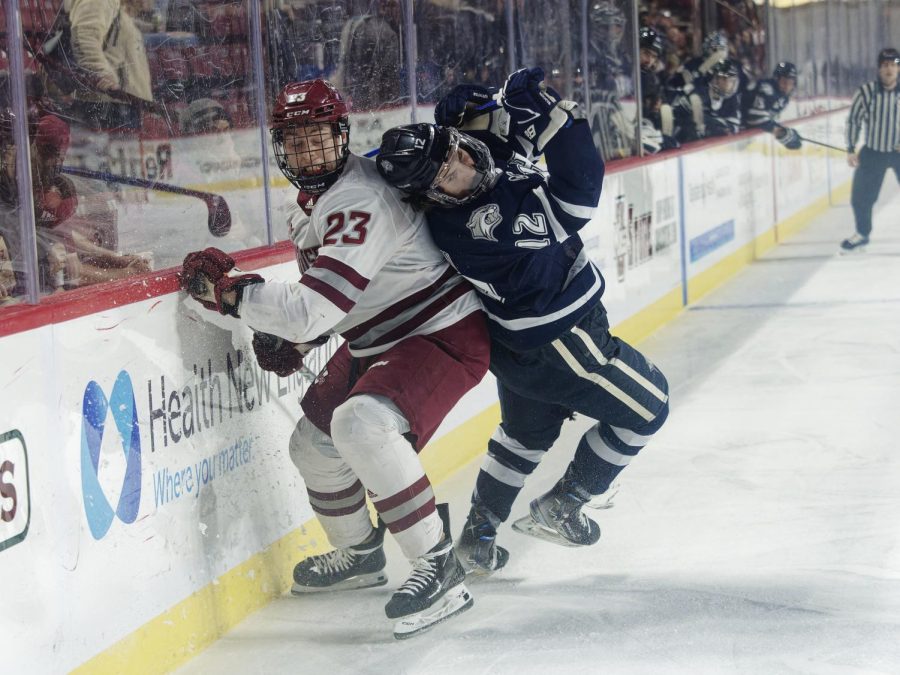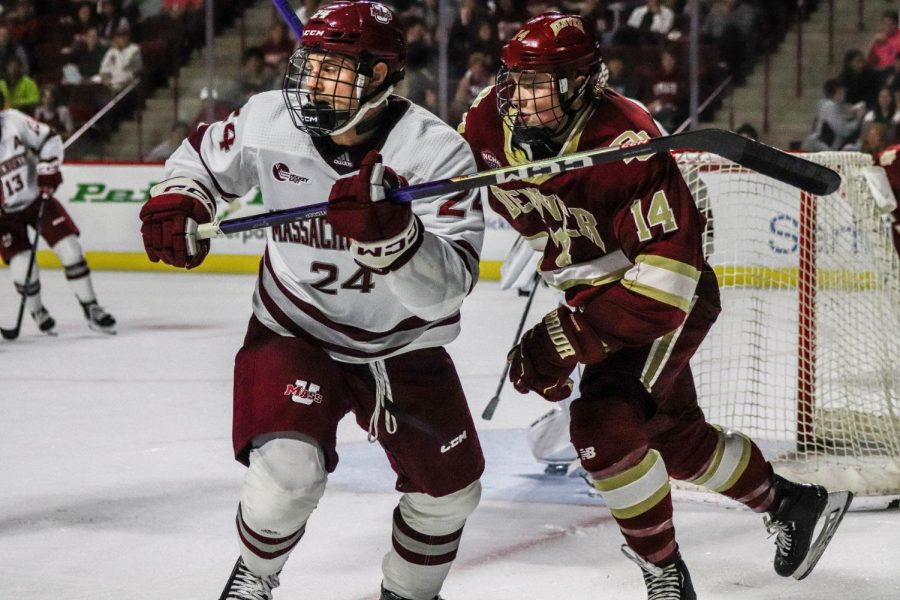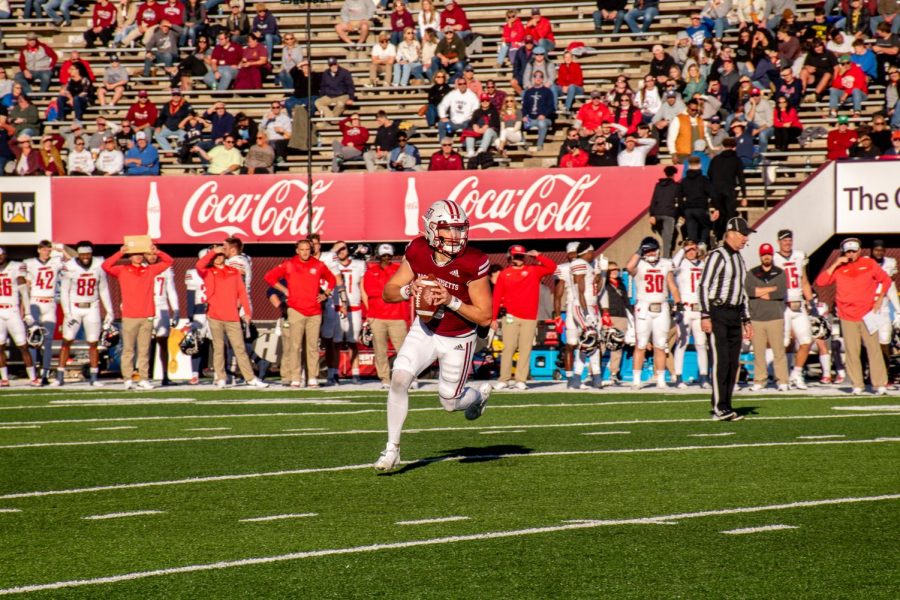
If you watched the first-round exit by the Massachusetts men’s basketball team in the Atlantic 10 tournament last season, you were treated to an abysmal display of offense.
The Minutemen scored 16 points in the first half and connected on 28.1 percent of their shots en route to 78-50 humbling loss to Dayton – a team standing in UMass’ way from reaching the top of the conference. The performance was quintessential of the struggles the Minutemen faced throughout the season with a dribble-drive offense.
UMass coach Derek Kellogg is trying to put those days in the rear-view mirror.
The departure of leading-scorer Anthony Gurley (18.7 points per game), among other factors, led to Kellogg making the decision this offseason to switch to an up-tempo, attacking style of play on the offensive end.
With an athletic and versatile roster, the switch comes at the right time. Kellogg’s first recruiting class which he can call his own – Freddie Riley, Sampson Carter, Terrell Vinson and Javorn Farrell – are entering their third year and looking to take the next step. Along with the juniors, up-and-coming point guard Chaz Williams will be at the head of the offense as the staff finally appears to be coaching to the Minutemen’s strengths.
Last season was difficult. Though Gurley was a go-to, reliable scorer, his production only took away from other players’ opportunities, both intentionally and indirectly. As Kellogg said, players would often stand around and rely on Gurley to make a play.
That’s not even considering the problems that the dribble-drive philosophy played. The coaches were trying to fit it a square peg into a round hole, imparting a system on a roster which lacked the adequate parts to be efficient.
Aside from Gurley and Farrell, UMass’ options for players with the ability to drive at will were limited. Aside from Gurley and Riley, the outside shooting was nonexistent. Without those two ingredients, the dribble-drive is destined to fail, which Kellogg and the Minutemen witnessed at times last year.
The dribble-drive is the brainchild of former assistant coach Vance Walberg, who arrived to UMass with Kellogg in the hopes of transitioning the system from a successful Memphis program to the rebuilding Minutemen.
Unlike the Tigers, however, who parlayed their explosive offense into deep NCAA tournament runs, UMass doesn’t possess a talent such as Derrick Rose or Tyreke Evans. Along with the departure of the dribble-drive this season is the exit of Walberg, who moves on to pursue other opportunities.
This year’s team will require more coaching on the offensive end by Kellogg than in his entire, and so-far brief, tenure with the Minutemen. For the first time in three seasons, UMass could be potentially without a big-time scorer to the likes of Ricky Harris and Gurley. At the moment, no one appears to be in position to average more than 18 points per game.
Without a playmaker to bail out the Minutemen in crucial, must-score scenarios, the onus will be on Kellogg to put his players in the best position to succeed. That means getting the ball to Riley in catch-and-shoot situations, entering the post to Vinson with a one-on-one and allowing space in the lane for Farrell to drive.
Many believe that the switch in offensive style is in part due to the pressure Kellogg feels to win now. While there is always pressure at a history-rich program such as UMass, Kellogg isn’t in jeopardy of losing his job. With only three years under his belt and a handful of recruits, Kellogg still has time to turn around a program which did take steps, albeit baby steps, last season.
Nevertheless, a change, especially on the offensive end, was necessary in the eyes of many fans and alumni. Now that Kellogg has made that change, an exciting brand of basketball appears to await the Minutemen.
Jay Asser can be reached at [email protected] and followed on Twitter @MDC_Asser.


